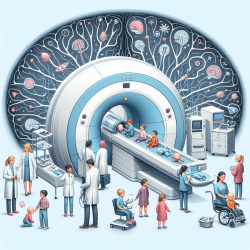In recent years, the plight of unaccompanied refugee minors (URM) has gained significant attention. These young individuals often face immense challenges, including trauma and mental health issues such as post-traumatic stress disorder (PTSD). A groundbreaking pilot study conducted in Sweden explored the feasibility of using Teaching Recovery Techniques (TRT) to support these vulnerable youth. This blog post delves into the findings of this study and offers insights on how practitioners can enhance their skills and interventions.
The Importance of TRT for Refugee Youth
The TRT program is a brief, manualized intervention designed to help trauma-exposed youth recover from PTSD. Developed by The Children and War Foundation, it incorporates trauma-focused cognitive behavioral therapy (TF-CBT) techniques. The Swedish UnaccomPanied yOuth Refugee Trial (SUPpORT) aimed to assess the feasibility of conducting a full-scale randomized controlled trial (RCT) to evaluate TRT's effectiveness among URM in Sweden.
Key Findings from the Pilot Study
- Recruitment Challenges: The study highlighted difficulties in recruiting sites and facilitators due to a lack of capacity and dedicated funding. Engaging URM was also challenging due to their life circumstances and mental health issues.
- Intervention Delivery: Despite challenges, TRT sessions were successfully delivered with acceptable attendance rates. However, adherence varied due to participants' unstable life situations.
- Data Collection: Online data collection proved feasible and acceptable, though some participants faced difficulties understanding translated questions.
- Need for Protocol Amendments: The study emphasized the need for changes in recruitment strategies and randomization procedures to improve feasibility for a full-scale RCT.
Implications for Practitioners
The findings from this pilot study offer valuable insights for practitioners working with refugee youth:
- Diversify Recruitment Strategies: Expand outreach efforts to include schools and community organizations. Customize recruitment materials to avoid stigmatizing language.
- Enhance Intervention Adherence: Consider delivering TRT in settings familiar to youth or explore online delivery options. Maintain regular communication with participants to encourage attendance.
- Pursue Further Research: Engage in studies that evaluate community-based interventions like TRT. Collaborate with other professionals to strengthen evidence-based practices.
The potential impact of TRT on improving the mental health of refugee youth is significant. By refining intervention strategies and pursuing further research, practitioners can better support these young individuals on their journey toward recovery.










